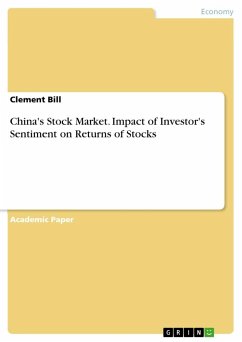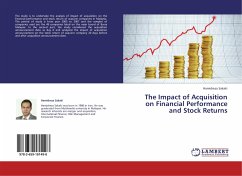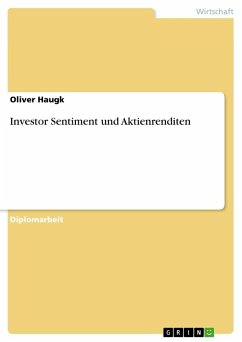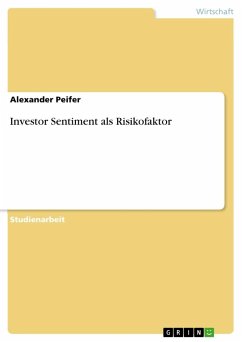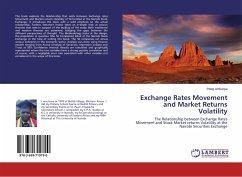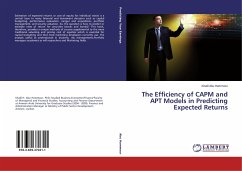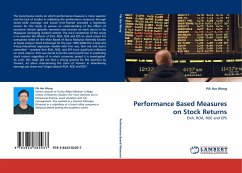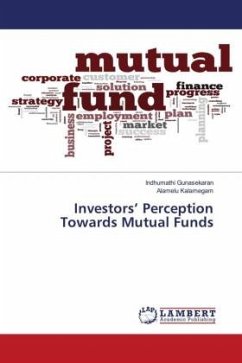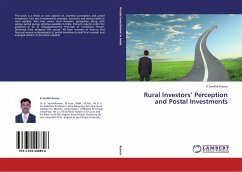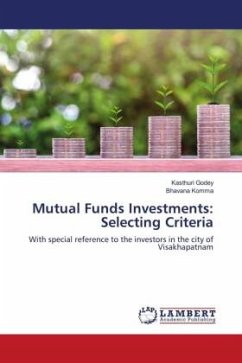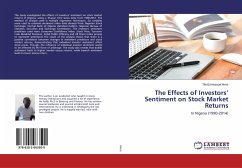
The Effects of Investors' Sentiment on Stock Market Returns
In Nigeria (1990-2014)
Versandkostenfrei!
Versandfertig in 6-10 Tagen
58,99 €
inkl. MwSt.

PAYBACK Punkte
29 °P sammeln!
The study investigated the effects of investors' sentiment on stock market returns in Nigeria, using a 25-year time series data from 1990-2014. The method of analysis used is multiple regression techniques. Six variables were used to estimate sentiment index data derived from: Nigerian Stock Exchange, Central Bank of Nigeria statistical bulletin, Nigerian Bureau of Statistics, Securities and Exchange Commission. The investors' sentiment predictors used were Consumer Confidence Index, Stock Price, Turnover ratio Dividend Premium, Initial Public Offering and All Share Index proxies to represent ...
The study investigated the effects of investors' sentiment on stock market returns in Nigeria, using a 25-year time series data from 1990-2014. The method of analysis used is multiple regression techniques. Six variables were used to estimate sentiment index data derived from: Nigerian Stock Exchange, Central Bank of Nigeria statistical bulletin, Nigerian Bureau of Statistics, Securities and Exchange Commission. The investors' sentiment predictors used were Consumer Confidence Index, Stock Price, Turnover ratio Dividend Premium, Initial Public Offering and All Share Index proxies to represent sentiments The result of the analysis shows that there is a positive correlation between changes in sentiment predictors and stock market returns, demonstrating that individual investor sentiment affect stock prices. Though, the influence of individual investor sentiment seems to be affected by the force of arbitrage. The study also reveals that bullish sentiment leads to higher market excess returns, while bearish sentiment leads to lower excess return.



